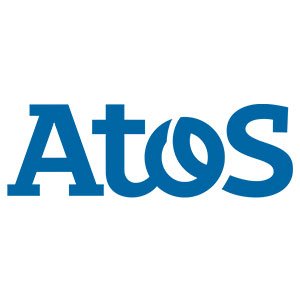
Keep up to date with our innovative initiatives.
Sign up here

Started at: 01-12-2019
Ends on: 30-11-2022
Budget: € 4,739,000
Areas: 5G & IoT - Software Networks
The Pledger project aims at delivering a new architectural paradigm and a toolset that will pave the way for next-generation edge computing infrastructures, tackling the modern challenges faced today and coupling the benefits of low latencies on the edge, with the robustness and resilience of cloud infrastructures.
The project will deliver a set of tools and processes that will enable a) edge computing providers to enhance the stability and performance effectiveness of their edge infrastructures, through modelling the overheads and optimal groupings of concurrently running services, runtime analysis, and adaptation, thus gaining a competitive advantage b) edge computing adopters to understand the computational nature of their applications, investigate abstracted and understandable QoS metrics, facilitate trust and smart contracting over their infrastructures and identify how they can balance their cost and performance to optimise their competitiveness and monitor their SLAs. By providing this toolset, the project will allow also third parties to act as independent validators of QoS features in IoT applications, enabling new decentralised applications and business models, thus filling a large gap in the emerging edge/IoT computing market landscape.
Impact 1: Contribute to the development of an ecosystem that will respond to the future digitisation needs of industry and the public sector
Pledger delivers a set of tools and processes that enable:
Thus, one of the most important impacts that the Pledger project is going to bring in is the support of an ecosystem comprising of all potential stakeholders of edge/cloud computing: providers, adopters and third parties.
Impact 2: Assist the development of new cloud-based services and infrastructures in Europe and foster an industrial capability in the cloud computing sector
The project will provide a toolset for edge computing stakeholders and edge resource users who will have the ability to better monitor, measure and predict the dynamics of edge computing computation based on QoS and QoE particular requirements of the application, thus enhancing the overall exploitation capabilities of the edge/cloud computing infrastructure for the benefit of all stakeholders in the value chain. To this end, the project will provide a significant impact in boosting the capacity of European innovators to provide a new set of cloud-based services and high-end edge / cloud computing infrastructures that can support business applications with new features of QoS and QoE.
Impact 3: Create new opportunities to encourage European-based providers, in particular SMEs, to develop and offer cloud-based services based on the most advanced technologies.
Pledger extends business models for the Edge/Cloud combination and eases the applicability and adaptation of such infrastructures to user requirements. Pledger enables new consulting roles and the tools to implement them, new entities to exploit and perform analytics on top of concentrated data in terms of SLA, smart contracts and performance monitoring, and new application categories to exploit the benefits of the combined Edge/Cloud model.
Three well-defined industry level use cases will prove the technical merit and validity of Pledger results in real-life contexts, emphasizing business requirements. The project will deliver best practices and a wider replicability framework (both in technical and organisational terms) that will significantly contribute towards the future wider adoption of the project findings in multiple business environments. These results of the project are expected to create new opportunities for many stakeholders in the related industry and research areas (and in particular SMEs) to enhance their service offers/product portfolio with edge/cloud-based services and new technologies, such as blockchains for increased trust and resilience in these environments.
Impact 4: Leverage research and innovation projects to support the development and deployment of innovative cloud-based services and next generation applications, for the public and private sectors (including standardisation and applications for Big-Data and other sector-specific applications).
The proposal strengthens trust through the auditability of SLAs, as well as increased trust in the achieved KPIs of the offered services and the measured metrics. Furthermore, it will propose a set of meaningful and comparative metrics for stakeholders such as edge/cloud adopters and Public Authorities to take under consideration when comparing providers. The selected benchmarks that directly reflect specific application areas also play a key role in this issue, since they can relate directly to the end users’ applications. The latter is also profiled via the edge/cloud adopter toolkit, in order to ensure that the target application is mapped to the corresponding benchmark set. Partners of the consortium (e.g. ICCS, ATOS) are already sharing views with the EC on procurement processes in the context of the H2020 SLALOM project. We expect this action to continue through the Pledger project. The project has as a starting point the research and development work that has been already carried out in other projects (EC funded or commercial ones). This is a very effective leverage of research results whose value is going to be brought in Pledger, maximizing its impact. Moreover, the Pledger work plan includes activities related to Standardisation (e.g. ETSI) and Contribution to Open Source Community which will impact the interoperability and global scale-out of the project findings and results.










This project has received funding from the European Union’s Horizon 2020 research and innovation programme under grant agreement No 871536.